WHAT CAN I EXPECT ON MY FIRST VISIT TO AN OSTEOPATH?
On your first visit we advise that you allow approximately an hour. In this time we talk to you about your aches, pain or postural concerns. We then ask about your medical history in case it implicates any part of our session, before starting your evaluation. Depending on the area to be evaluated we may need to you to undress to your underwear or change into a pair of shorts so that we can assess your posture and movements, and then perform various orthopaedic tests. These aid us in reaching a diagnosis, which we then discuss with you before starting your treatment.
We talk to you about all aspects of the treatment and tailor it to your needs, and before you leave we will give you any necessary advice on exercise, rehabilitation and how to manage your pain.
DO I NEED TO BE REFERRED BY MY GP?
You do not need GP referral to see any of our therapists, just give us a call and we’ll direct you to the right person. However we can make referral onto various other specialists, including MRI if we think its necessary.
DO I NEED TO HAVE AN XRAY OR MRI BEFORE SEEING AN OSTEOPATH?
If you have had a scan relating to your current symptoms, it would be helpful to bring the results with you. However, it is not necessary to have a scan prior to an Osteopathic consultation because the questions we ask and the examination will help us to diagnose your problem. If we feel you need a scan, we can refer you to your GP or to a private clinic.
HOW MANY TREATMENTS WILL I NEED?
This varies depending on your condition, how long its been there, and how you respond to treatment. We often advise that you come for regular treatment until your symptoms have resolved. Most often this is just a few sessions and we are always guided to our answer by your symptoms. For example, how regular your visits are and how many you will need, will depend on your symptoms and how you progress.
Some patients also use Osteopathy to manage more chronic conditions and we aim to find a management plan that is right for you, which means it very tailored and specific to your individual needs. Osteopathy also works very well as a preventative medicine. We all see our dentist every 6 months to a year for check ups and to prevent future problems occurring, but for our whole body we tend to only visit practitioners when we have symptoms. In an ideal world we would maintain our health and physical body at its optimum by regular body check ups too.
ARE YOU REGISTERED WITH ANY INSURANCE PROVIDERS?
The Osteopaths at Southwold Treatment Rooms are registered with Simply Health, WPA and Aviva. Please contact your insurance provider before your first consultation and mention to us when booking your appointment that your treatment is provided by the insurance company. Usually your provider will allow a certain number of treatments, so please inform us of this. You may need to give us your provider number because we invoice the company directly after your sessions unless the company ask otherwise. If we need to confirm the diagnosis and treatment plan with the provider, we will ask your permission first.
WHAT IS ACUPUNCTURE AND HOW DOES IT WORK?
The Osteopaths at Southwold Treatment Rooms use Western Medical Acupuncture as part of treatment. This is different to traditional Chinese Acupuncture because the needles are placed directly in muscles to relax them and provide pain relief. This technique is particularly good for acute conditions and when muscles are in spasm. Acupuncture uses very fine needles so most people don’t even feel the needle being placed or removed- it’s a very different feeling to a blood test or injection! Your Osteopath will explain how acupuncture works and feels in your first session and if they think you will benefit from it they will discuss it with you first. Use of acupuncture in the session does not incur an extra charge.
WHAT IS NEUROLOGICAL PHYSIOTHERAPY?
Damage to your central nervous system, including your brain and spinal cord, means that the messages from your brain are not reaching the affected parts of your body. This can result in loss of movement and muscle power, reduced feeling in affected arms/legs, poor coordination of movement and balance, stiffness, spasm and tremor.
Neurological physiotherapy helps to positively modify the message pathways that your brain and nervous system is struggling to use, to make new pathways through repetitive actions and exercise. It can improve symptoms such as difficulties with balance and posture, the loss of hand and arm, or leg and foot function, improve walking quality and speed, and reduce and help manage spasms and pain.
Typical conditions treated: Stroke; Acquired brain injury; Parkinsons disease, Cerebellar Ataxia; Multiple Sclerosis; Motor Neurone disease; Gullain Barre syndrome; Spinal cord injury; Peripheral neuropathies; Neuromuscular disorders.
WHAT IS VESTIBULAR REHABILITATION?
Vestibular rehabilitation is effective in reducing dizziness and vertigo, poor balance and associated falls. specialist exercises are prescribed to aid balance system integration and minimise motion sensitivity. Vestibular rehabilitation can improve quality of life in people with dizziness and balance disorders.
Typical conditions treated: Peripheral vestibular disorder following Labyrinthitis/Vestibular Neuritis; Vestibular Migraine; Bilateral Vestibular Failure; BPPV (positional vertigo); Meniere’s disease; Dizziness following whiplash or concussion; Balance problems and falls; Motion sensitivity.

